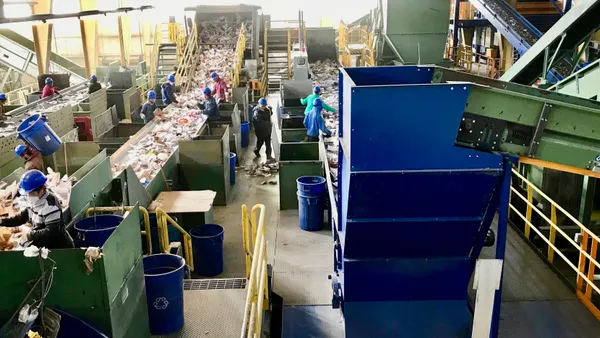Dive Brief:
- A recent study by the North Carolina Department of Environmental Quality (DEQ) analyzed the state's organic recycling infrastructure and found that collection remains a bigger problem than processing capacity, as reported by the Enquirer Journal.
- The state's 52 permitted composting facilities are currently using 35% of their capacity. In 2015, these facilities received more than 600,000 tons of organic material of all varieties. About half of this was yard waste.
- During that period 100,000 tons of food were diverted from landfills, 15,000 of which were donated to feed the hungry. The rest was diverted to composting, anaerobic digestion or animal feeding.
Dive Insight:
The report credits solid waste statutes and a yard waste ban from the early 1990s as the reason for North Carolina's robust system of composting facilities. DEQ says they have more than enough capacity to handle additional material as part of the Environmental Protection Agency's goal of reducing food waste 50% by 2030.
According to 2012 data, DEQ estimates that 1.2 million tons of food are sent to landfills every year so the challenge becomes finding better ways to collect it. Though the state has many composting facilities and donation centers, they're not always close to generators. The potential for dense collection routes, possibly anchored around large generators, is listed as a key step.
Unlike other states and cities which have landfill bans or zero waste programs, North Carolina doesn't have an official system in place for organics diversion. The fact that the state has adequate processing capacity puts them ahead of others, but the environmental costs of transporting material must also be weighed if facilities are too far apart. Community-scale projects around food waste reduction and education, such as the one recently started in Charlotte, are a good way to start tackling this problem.










